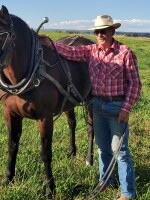Foreign ownership of U.S. agricultural land has been a popular target for state legislators his year, likely driven by attempts to block Chinese ownership of land in the U.S. Legislation has banned Chinese ownership 15 states in the west, southeast and Indiana. While this political posturing may make good news headlines, the reality is that China is a very minor player in ag real estate markets. For example, Canada owns 13 million acres, followed by the Netherlands at five million acres. China is actually a minor player, owning about 384,000 acres. David Ortega, a food systems specialist and professor at Michigan State University, warns that this type of legislation creates a very slippery slope for agriculture, and he cites the Chinese company WH Group as an example, because it owns Smithfield Foods, and if the WH Group was forced to divest its land holdings in the U.S. it could bring disruptions to the whole U.S. pork industry. Plus, China is the largest export market for U.S. food and agricultural products, and agricultural exports to China have declined over the past five years due to mounting trade tensions. Ortega contends that it would be far easier for China to replace where it sources those agricultural products than for the U.S. to find a replacements to the Chinese market.
According to new data released by the U.S. Dept. of Agriculture in November, Plant Hardiness Zones are slowly shifting across the United States. But researchers contend that this is not a huge cause for alarm. The new map indicates that the contiguous U.S. is now about 2.5 degrees Fahrenheit warmer than the last map published 11 years ago. So gardeners may find their growing seasons a bit longer and warmer that it was a decade ago.
In a recent joint press release, Colorado Parks and Wildlife and the Colorado Department of Agriculture announced that they have signed a Memorandum of Understanding (MOU) concerning how the agencies will collaborate to manage the reintroduction of gray wolves on Colorado’s Western Slope, which is scheduled to begin on December 31st of this year. The MOU directs the agencies to work together to create and share information and prevention strategies that will help to ensure that agriculture producers and landowners have the appropriate support foe protecting their livestock and pets during this process. The MOU also includes specific expertise and resources that these agencies will contribute to producers concerning the technical assistance they’ll provide for non-lethal wolf prevention methods and development of livestock management strategies to prevent livestock-predator interactions.
John Deere has introduced a self-repair solution available in the U.S. through its Equipment Mobile app. Using a John Deere Operations Center account, Deere customers operating compatible 4G-connected machines can use this App to complete secure software updates directly to an embedded controller through a user-friendly interface, using the Equipment Mobile app that is available free for both iPhone and Android operating systems. According to John Deere, the Equipment Mobile app helps their customers to manage, maintain and keep their equipment running. Deere says this software-updating program is another step toward digitizing self-repair for its customers. For more information concerning the John Deere Mobile App, visit www.Deere.com/repair.
Italian philosopher and poet Giordano Bruno wrote: “Truth does not change because it is, or is not believed, by a majority of the people.”



